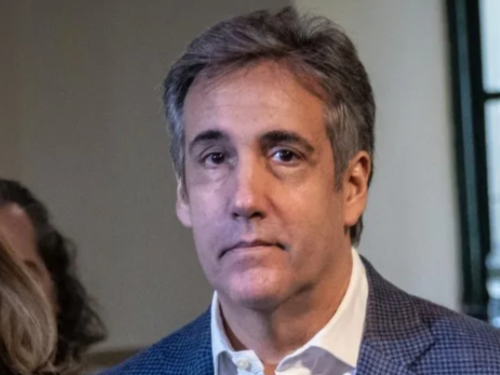Camera Catches Letitia James And Judge Engoron LIVE In The Act

In what may be his final testimony in the hush money case involving the former president of the United States, Michael Cohen disclosed during cross-examination how extensively he had plotted to damage Trump and his real estate business before resigning.
Todd Blanche, the defense attorney, provided a shocking overview of the financial transactions in 2017 between Cohen and Alan Weisselberg, the former CFO of the Trump Organization. Expressing frustration over not being reimbursed for a $130,000 payment to adult film star Stormy Daniels, Cohen admitted he had “stolen” money from President Trump by supplying his colleague with fake reimbursement documents. The jury was shown handwritten notes that appeared to tally Cohen’s calculated debt after the payment, along with an additional $50,000 payment to Red Finch, a tech company. Cohen did not pay the entire amount, however.
“So the $50,000 that you got back from Red Finch… you only paid the Red Finch owner $20,000, right?” Blanche asked. “Yes sir,” Cohen confirmed, as reported by CNN.
“I just didn’t want to take out $20,000” at once, Cohen explained. “I don’t recall if it was exactly $20,000,” he added. Cohen confirmed that he kept the extra $30,000 that Weisselberg had reimbursed him for.
He further stated that although Red Finch initially wanted the full $50,000, they eventually agreed to settle for less than half.
“So, you stole from the Trump organization,” Blanche questioned, noting Cohen was reimbursed $100,000. “Yes sir,” Cohen replied to Blanche.
“You didn’t just steal the $30,000, because it was grossed up, it was $60,000,” Blanche asked. “Yes, sir,” Cohen responded.
Cohen mentioned that he had discussed the matter with several prosecutors from the district attorney’s office.
“Did you ever have to plead guilty to larceny?” Blanche asked.
“No, sir,” Cohen answered.
CNN reported that when President Trump inquired about the money, which was part of the $420,000 that Cohen was repaid, including the amount given to Daniels, he was visibly alert and glaring at Cohen. Blanche presented an email dated January 31, 2017, from Weisselberg, which outlined Cohen’s monthly payments to finalize the reimbursement.
The initial email from Cohen read, “Note and mortgage modification agreement for Trump Park Avenue Condominium.” “I’m grateful. You never made time for a friendly embrace. Nevertheless, Weisselberg said, “Please prepare the agreement discussed” so we can pay you on a monthly basis.”
As Manhattan District Attorney Alvin Bragg prepares to deliver closing arguments in what is likely the only case against Trump to be concluded before Election Day, Cohen returned for a fourth day of significant testimony. Legal experts have consistently noted that Bragg’s reliance on “circumstantial evidence”—such as references to extramarital affairs and a “catch and kill” approach to suppress negative news—is weak. As voters continue to question the impartiality of the cases against him, Trump’s ongoing legal battle has strengthened his supporters’ confidence and garnered backing from unexpected sources.